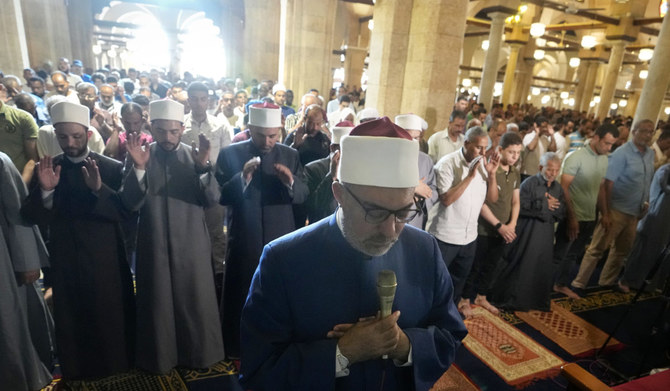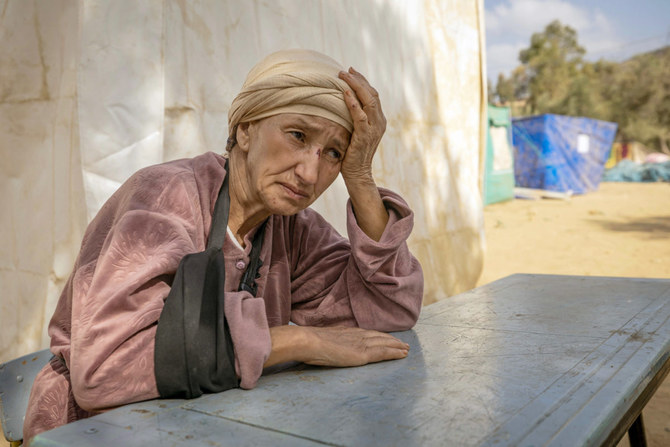IDLIB, Syria: More than 2,000 Syrians in the rebel-held Idlib region, devastated by an earthquake in February, held prayers on Friday for the victims of natural disasters in Morocco and Libya.
The February 6 quake, centered on neighboring Turkiye, killed nearly 6,000 people in mainly rebel-held northern and northwestern Syria where survivors are still piecing their lives back together.

In this aerial view, a mosque stands amid the destruction caused by flash floods after the Mediterranean storm "Daniel" hit Libya's eastern city of Derna, on September 13, 2023. (AFP)
“Today, perhaps we are the best placed to pray for our brothers for whom no one has prayed ... Our souls are one, our religion unites us,” said Mahmoud Al-Hubaish, the imam of Idlib’s largest mosque.
Among those taking part in the prayers was Mohamed Al-Bacha, who lost his wife and children in the quake as well as an arm.
“We prayed for our brothers in Libya and Morocco,” the 31-year-old told AFP. “I felt like I was praying for my wife and children.”

A girl stands near a relief tent in the mountain village of Tafeghaghte, southwest of Marrakesh city on September 15, 2023, following a devastating earthquake. (AFP)
A massive flash flood in eastern Libya triggered by Storm Daniel on Sunday left more than 3,000 people dead, 10,000 missing and entire neighborhoods in ruins.
A week ago, a magnitude 6.8 earthquake — Morocco’s strongest ever — killed nearly 3,000 people and injured more than 5,600, according to official figures.
The mosque was packed full for Friday’s prayers, an AFP journalist reported.
“As Syrians, we have experienced what they have experienced,” said Abu Osama, a 45-year-old who fled to Idlib from the central province of Hama earlier in Syria’s more than decade-old civil war.
“The earthquake greatly affected us because we lost our loved ones in an earthquake similar to the one in Morocco,” he said.
“We felt their pain as we prayed.”
























